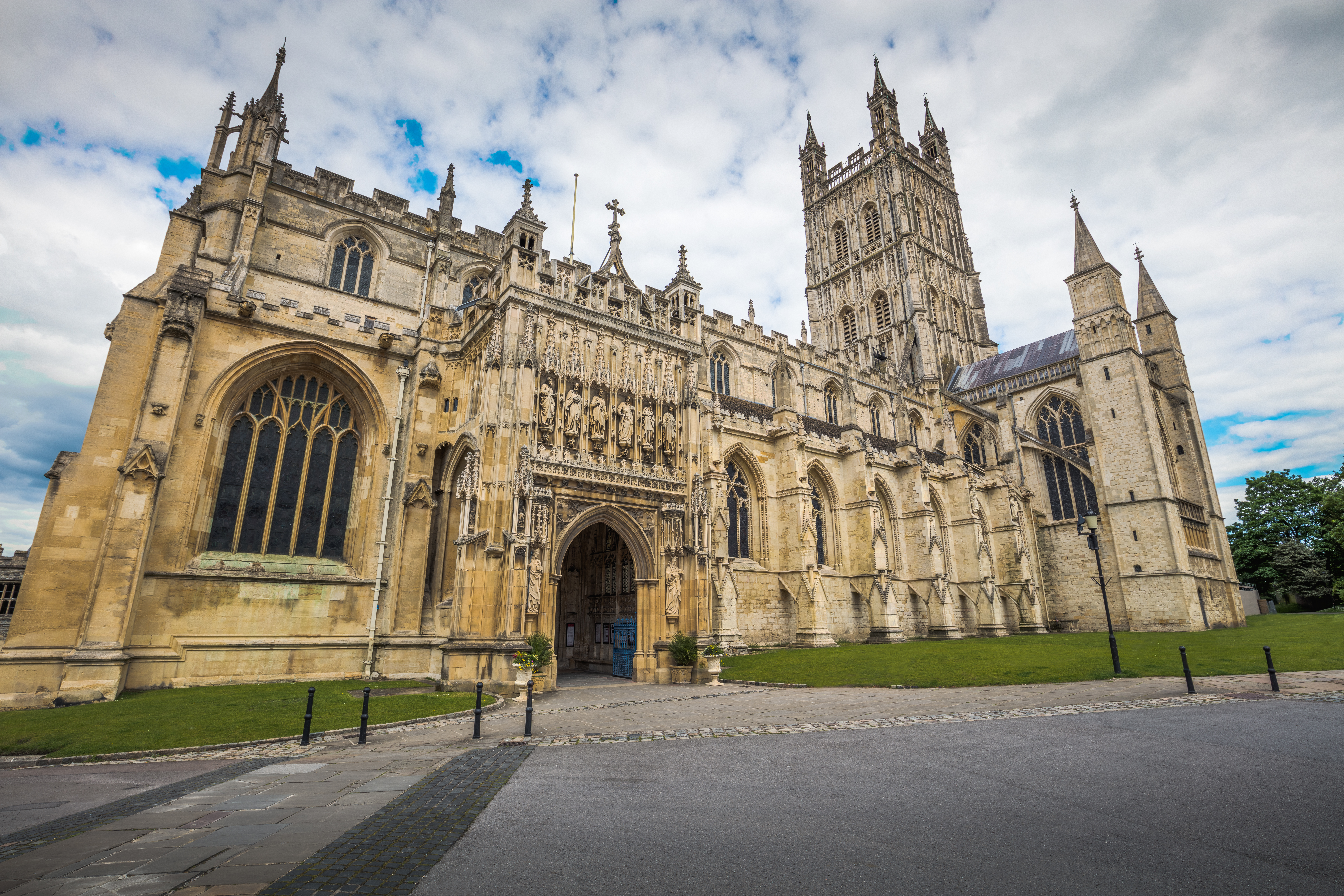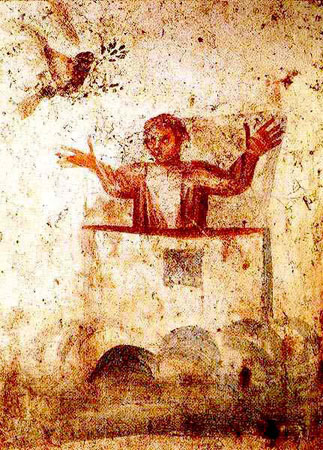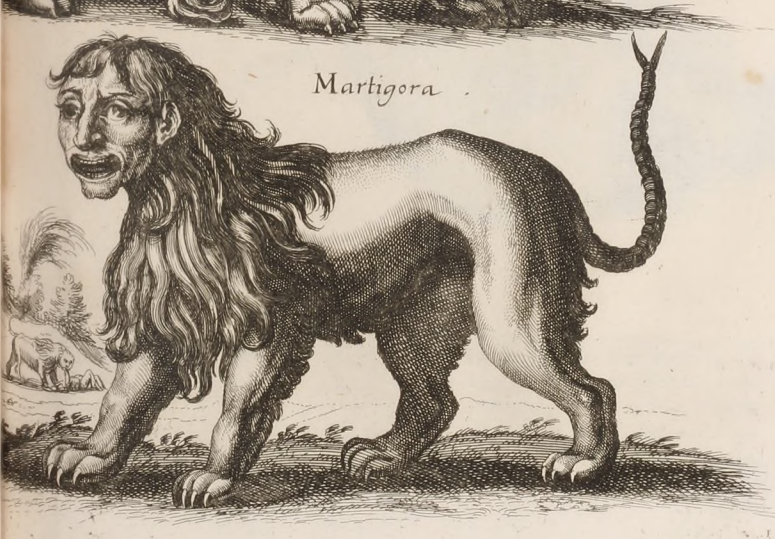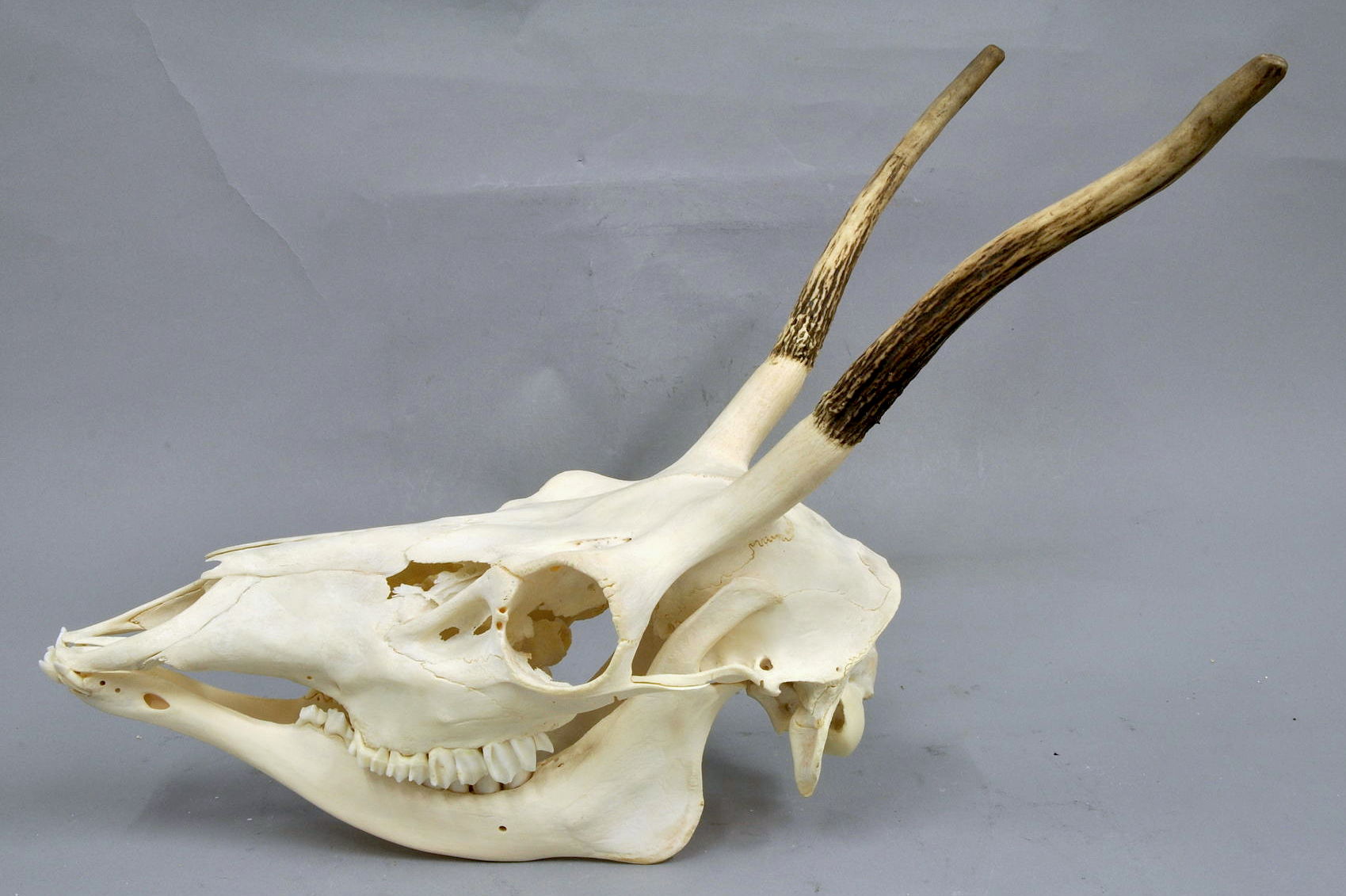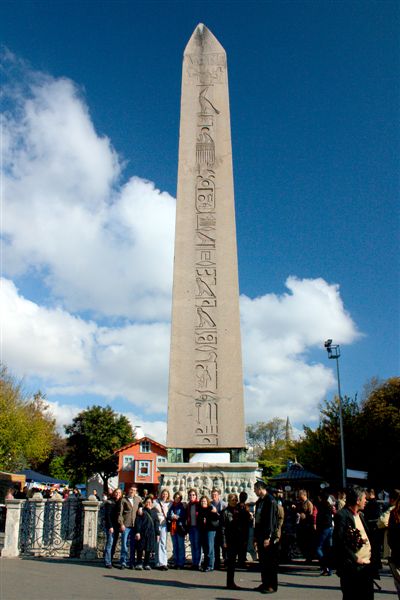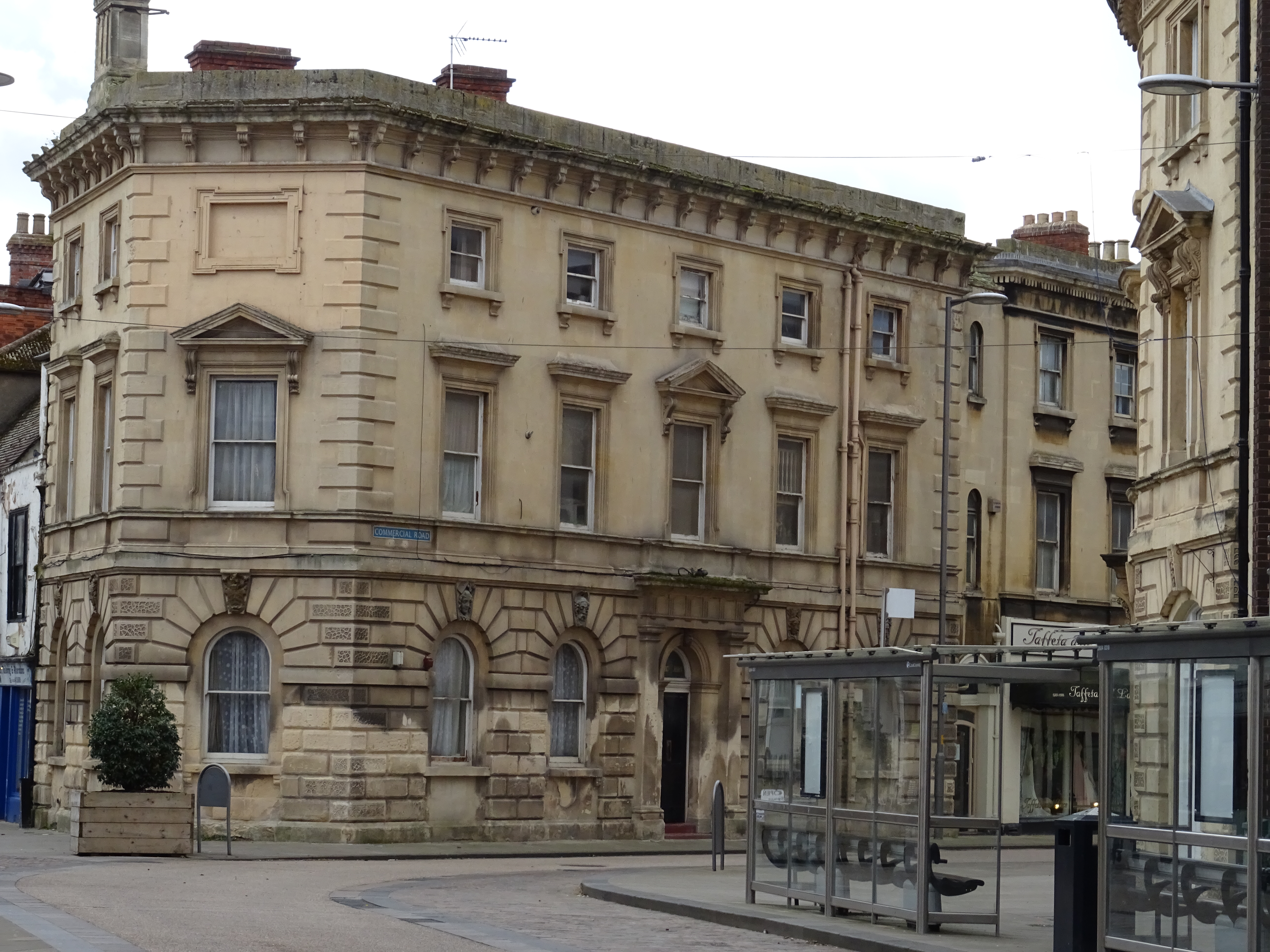|
Gloucester Tabula Set
The Gloucester tabula set is the earliest surviving board and complete set of counters for the game tabula, a tables game and possible predecessor of backgammon. Dating from the 11th or early 12th century, it is an example of Romanesque art. Discovered on the site of Gloucester Castle in 1983, in the English city of Gloucester, it is now on display in the Museum of Gloucester. Description The set was excavated at 28–32 Commercial Road, Gloucester, the site of a Norman castle.Darvill 1988, p. 1 One hundred and fifty pieces of carved bone were found at the bottom of a late-11th-century rubbish pit. These comprised a full set of 30 gaming pieces, and fragments of the board.Stewart 1984, p. 186 Some fragments are missing, and there is evidence of deliberate damage in four places. This suggests that the set was deliberately broken up elsewhere, and dumped in the pit. Archaeological evidence suggests that this happened c. 1070-1120, with study of the artistic characteristics of ... [...More Info...] [...Related Items...] OR: [Wikipedia] [Google] [Baidu] |
Gloucester
Gloucester ( ) is a cathedral city, non-metropolitan district and the county town of Gloucestershire in the South West England, South West of England. Gloucester lies on the River Severn, between the Cotswolds to the east and the Forest of Dean to the west; it is sited from Monmouth, from Bristol, and east of the England and Wales border, border with Wales. Gloucester has a population of around 132,000, including suburban areas. It is a port, linked via the Gloucester and Sharpness Canal to the Severn Estuary. Gloucester was founded by the Roman Empire, Romans and became an important city and ''Colonia (Roman), colony'' in AD 97, under Nerva, Emperor Nerva as ''Glevum, Colonia Glevum Nervensis''. It was granted its first charter in 1155 by Henry II of England, Henry II. In 1216, Henry III of England, Henry III, aged only nine years, was crowned with a gilded iron ring in the Chapter House of Gloucester Cathedral. Gloucester's significance in the Middle Ages is unde ... [...More Info...] [...Related Items...] OR: [Wikipedia] [Google] [Baidu] |
Interlace (art)
In the visual arts, interlace is a decorative element found in medieval art. In interlace, bands or portions of other motifs are looped, braided, and knotted in complex geometric patterns, often to fill a space. Interlacing is common in the Migration period art of Northern Europe, in the early medieval Insular art of Britain and Ireland, and Norse art of the Early Middle Ages, and in Islamic art. Intricate braided and interlaced patterns, called ''plaits'' in British usage, first appeared in late Roman art in various parts of Europe, in mosaic floors and other media. Coptic manuscripts and textiles of 5th- and 6th-century Christian Egypt are decorated with broad-strand ribbon interlace ornament bearing a "striking resemblance" to the earliest types of knotwork found in the Insular art manuscripts of Ireland and the British Isles.Mitchell et al. 1977, p. 59 History and application Northern Europe Interlace is a key feature of the "Style II" animal style decoration ... [...More Info...] [...Related Items...] OR: [Wikipedia] [Google] [Baidu] |
Historical Tables Games
History is the systematic study of the past, focusing primarily on the human past. As an academic discipline, it analyses and interprets evidence to construct narratives about what happened and explain why it happened. Some theorists categorize history as a social science, while others see it as part of the humanities or consider it a hybrid discipline. Similar debates surround the purpose of history—for example, whether its main aim is theoretical, to uncover the truth, or practical, to learn lessons from the past. In a more general sense, the term ''history'' refers not to an academic field but to the past itself, times in the past, or to individual texts about the past. Historical research relies on Primary source, primary and secondary sources to reconstruct past events and validate interpretations. Source criticism is used to evaluate these sources, assessing their authenticity, content, and reliability. Historians strive to integrate the perspectives of several sour ... [...More Info...] [...Related Items...] OR: [Wikipedia] [Google] [Baidu] |
Archaeology Of Gloucestershire
Archaeology or archeology is the study of human activity through the recovery and analysis of material culture. The archaeological record consists of artifacts, architecture, biofacts or ecofacts, sites, and cultural landscapes. Archaeology can be considered both a social science and a branch of the humanities. It is usually considered an independent academic discipline, but may also be classified as part of anthropology (in North America – the four-field approach), history or geography. The discipline involves surveying, excavation, and eventually analysis of data collected, to learn more about the past. In broad scope, archaeology relies on cross-disciplinary research. Archaeologists study human prehistory and history, from the development of the first stone tools at Lomekwi in East Africa 3.3 million years ago up until recent decades. Archaeology is distinct from palaeontology, which is the study of fossil remains. Archaeology is particularly important for learni ... [...More Info...] [...Related Items...] OR: [Wikipedia] [Google] [Baidu] |
Orans Posture
Orans, a loanword from Medieval Latin ''orans'' () translated as "one who is praying or pleading", also orant or orante, as well as lifting up holy hands, is a posture or bodily attitude of prayer, usually standing, with the elbows close to the sides of the body and with the hands outstretched sideways, palms up. The orans posture of prayer has a Scriptural basis in 1 Timothy 2 (): "I desire, then, that in every place the men should pray, lifting up holy hands without anger or argument" (NRSV). It was common in early Christianity and can frequently be seen in early Christian art, being advised by several early Church Fathers, who saw it as "the outline of the cross". In modern times, the orans position is still preserved in Oriental Orthodoxy, as when Coptic Christian believers pray the seven canonical hours of the Agpeya at fixed prayer times. The orans also occurs within parts of the Catholic, Oriental Orthodox, Eastern Orthodox, Lutheran, and Anglican liturgies, Pentecosta ... [...More Info...] [...Related Items...] OR: [Wikipedia] [Google] [Baidu] |
Manticore
The manticore or mantichore (Latin: ''mantichorās''; reconstructed Old Persian: ; Modern ) is a legendary creature from ancient Persian mythology, similar to the Egyptian sphinx that proliferated in Western European medieval art as well. It has the face of a human, the body of a lion, and the tail of a scorpion or a tail covered in venomous spines similar to porcupine quills. There are some accounts that the spines can be launched like arrows. It eats its victims whole, using its three rows of teeth, and leaves no bones behind. Other accounts also have it sporting the wings of a dragon. Etymology The English-language term ''manticore'' comes via Latin ''mantichorās'' from Ancient Greek (martikhórās).Cf. Henry Liddell, Henry George Liddell & Robert Scott (philologist), Robert Scott, ''A Greek-English Lexicon'', This in turn is a transliteration of an Old Persian compound word consisting of ''martīya'' 'man' and ''xuar-'' stem, 'to eat' (Mod. ; ''mard'' + ; ''khordan''); i. ... [...More Info...] [...Related Items...] OR: [Wikipedia] [Google] [Baidu] |
Red Deer
The red deer (''Cervus elaphus'') is one of the largest deer species. A male red deer is called a stag or Hart (deer), hart, and a female is called a doe or hind. The red deer inhabits most of Europe, the Caucasus Mountains region, Anatolia, Iran, and parts of western Asia. It also inhabits the Atlas Mountains of Northern Africa, being the only living species of deer to inhabit Africa. Red deer have been introduced to other areas, including Australia, New Zealand, the United States, Canada, Peru, Uruguay, Chile and Argentina. In many parts of the world, the meat (venison) from red deer is used as a food source. The red deer is a ruminant, characterized by a four-chambered stomach. Genetics, Genetic evidence indicates that the red deer, as traditionally defined, is a species group, rather than a single species, though exactly how many species the group includes remains disputed. The ancestor of the red deer probably originated in central Asia. Although at one time red deer were ... [...More Info...] [...Related Items...] OR: [Wikipedia] [Google] [Baidu] |
Lathe
A lathe () is a machine tool that rotates a workpiece about an axis of rotation to perform various operations such as cutting, sanding, knurling, drilling, deformation, facing, threading and turning, with tools that are applied to the workpiece to create an object with symmetry about that axis. Lathes are used in woodturning, metalworking, metal spinning, thermal spraying, reclamation, and glass-working. Lathes can be used to shape pottery, the best-known design being the Potter's wheel. Most suitably equipped metalworking lathes can also be used to produce most solids of revolution, plane surfaces and screw threads or helices. Ornamental lathes can produce three-dimensional solids of incredible complexity. The workpiece is usually held in place by either one or two ''centers'', at least one of which can typically be moved horizontally to accommodate varying workpiece lengths. Other work-holding methods include clamping the work about the axis of rotation using a ... [...More Info...] [...Related Items...] OR: [Wikipedia] [Google] [Baidu] |
Obelisk
An obelisk (; , diminutive of (') ' spit, nail, pointed pillar') is a tall, slender, tapered monument with four sides and a pyramidal or pyramidion top. Originally constructed by Ancient Egyptians and called ''tekhenu'', the Greeks used the Greek term to describe them, and this word passed into Latin and ultimately English. Though William Thomas used the term correctly in his ''Historie of Italie'' of 1549, by the late sixteenth century (after reduced contact with Italy following the excommunication of Queen Elizabeth), Shakespeare failed to distinguish between pyramids and obelisks in his plays and sonnets. Ancient obelisks are monolithic and consist of a single stone; most modern obelisks are made of several stones. Ancient obelisks Egyptian Obelisks were prominent in the architecture of the ancient Egyptians, and played a vital role in their religion placing them in pairs at the entrance of the temples. The word "obelisk" as used in English today is of Greek rathe ... [...More Info...] [...Related Items...] OR: [Wikipedia] [Google] [Baidu] |
Museum Of Gloucester
The Museum of Gloucester in Brunswick Road is the main museum in the city of Gloucester, England. It was extensively renovated following a large National Heritage Lottery Fund grant, and reopened on Gloucester Day, 3 September 2011. In March 2016, the museum rebranded itself; it used to be called the Gloucester City Museum & Art Gallery. Gloucester Life is a smaller museum in Westgate Street, dealing with the social history of Gloucestershire. Origins The museum opened on 12 March 1860 as a private venture in three rooms at ''The Black Swan'', provided rent-free by the poet Sydney Dobell. In 1896 the ''Corporation of the City of Gloucester'' took over the venture. The building The Victorian building, in the early Renaissance style, inspired by the work of T.G. Jackson, is Grade II listed by English Heritage. It was originally the ''Price Memorial Hall'' of the ''Gloucester Science and Art Society'', built for Margaret Price as a memorial to her husband William Edwin Price ... [...More Info...] [...Related Items...] OR: [Wikipedia] [Google] [Baidu] |
Tables Games
Tables games are a class of board game that includes backgammon and which are played on a tables board, typically with two rows of 12 vertical markings called point (tables game), points. Players roll dice to determine the movement of pieces. Tables games are among the oldest known board games, and many different varieties are played throughout the world. They are called "tables" games because the boards consist of four quadrants or "tables". The vast majority are race games, the tables board representing a linear race track with start and finish points, the aim being to be first to the finish line, but the characteristic features that distinguish tables games from other race games are that they are two-player games using a large number of pieces, usually fifteen per player. Tables games should not be confused with Casino game#Table games, table games which are casino gambling games like roulette or blackjack. Name The word "tables" is derived from the Latin ''tabula'' which pr ... [...More Info...] [...Related Items...] OR: [Wikipedia] [Google] [Baidu] |
Commercial Road, Gloucester
Commercial Road is located in the City of Gloucester, England. It runs from The Quay and Severn Road in the north to Kimbrose Way and Southgate Street in the south. It is joined by Barbican Road and Ladybellegate Street on the north side and by entrances to Gloucester Docks on the south side. On the north side on the corner with Barbican Road is the former Gloucester Prison and the former site of Blackfriars on the corner with Ladybellegate Street. Listed buildings Commercial Road contains a number of listed buildings In the United Kingdom, a listed building is a structure of particular architectural or historic interest deserving of special protection. Such buildings are placed on one of the four statutory lists maintained by Historic England in England, H ...: North side * Gloucester Prison Governor's House * Black Swan Hotel South side * Dock Company Office * City Flour Mills * Soldiers of Gloucestershire Museum, formerly the Customs House * 27 and 29 Northgate ... [...More Info...] [...Related Items...] OR: [Wikipedia] [Google] [Baidu] |
